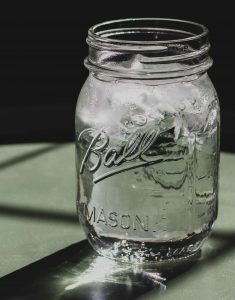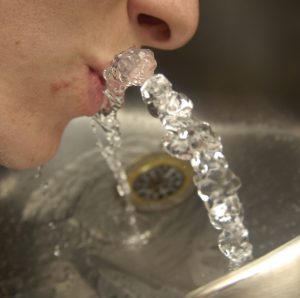
Stay Hydrated!
Staying well hydrated is essential to sustain life. Insufficient water and fluid consumption can lead to dehydration. However, dehydration is much more than quenching your thirst. Dehydration is a medical condition in which the body does not have adequate water necessary to properly function.
Basically, it is when you lose more water than you consume. You lose water in urine, sweat, and feces. Conversely, you consume water by drinking plain water and other fluids (milk, juice, tea, coffee, etc.) and consuming foods, especially fresh fruits and vegetables. Solid food provides approximately 20% of your daily fluid intake.
Dehydration can be mild, moderate, or severe. Severity will depend on how much of the body’s fluid is lost or not replenished. Severe dehydration is a serious life-threatening condition requiring immediate medical treatment. Symptoms of low-fluid intake and dehydration may include dry mouth caused by less saliva, trouble swallowing, dry eyes, headaches, lethargy, poor appetite, muscle cramps, and kidney stones.
Anyone can become dehydrated. Older adults are especially at risk of dehydration. Some factors that can increase dehydration in older adults include losing their sense of thirst, taking medications such as diuretics that cause fluid loss, and certain health conditions that make it hard to drink. Additionally, excessive sweating and hot weather can also affect hydration.
How much water do we need?
So, how much water and fluid do we need each day? In general, daily fluid intake recommended by U.S. health authorities is 9 cups for women and 13 cups for men. However, the amount an individual requires depends on several factors including age, body weight, activity level, air temperature, medications, intake of high-fiber foods or fiber supplements, and overall health.

Staying well hydrated can be achieved by purposefully consuming water and fluids throughout the day, even if you don’t feel thirsty. While it is very important to drink plain water, there are other ways to reach your total water and fluid goals for the day. Choose beverages that are low in added sugar and sodium. Instead, try 100% fruit juices, low-sodium soups and vegetables juices, and low-fat or fat-free milk. Coffee and tea may also help you stay hydrated. However, large amounts of caffeinated beverages and alcohol can cause dehydration and should not be counted in your daily fluid intake.
Remember to first consult your doctor to determine what level of daily water and fluid intake is right for you.
Click here to visit UF/IFAS Extension for more information about the importance of staying well hydrated.
 0
0
